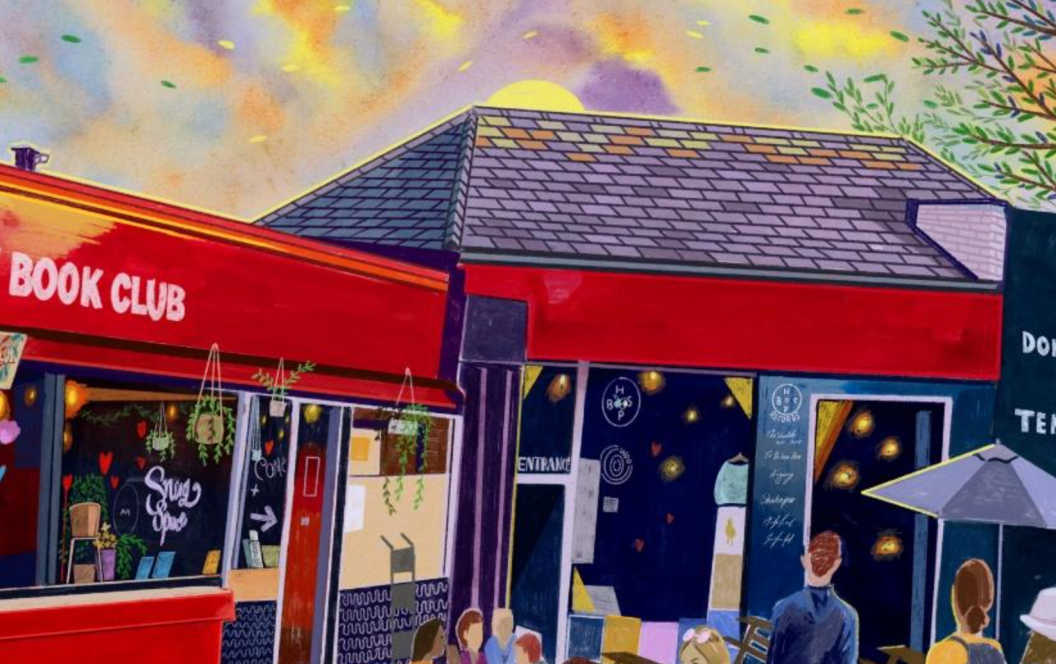This week for the NDF blog, we have a round up from one of our events last year, to remind you, and us, just how good the events are that we put on.
After an electrifying opening night, the next design panel occurred in the Storey’s auditorium. An hour before the event, the team arranged seats, set up cameras and obtained refreshments for the panel.
Before she took the stage, Lisa Llewellyn, a representative from Kellanova (the parent company of Kellogg’s) spoke with our Design Director Niamh Cartwright. They found common interest in their joint affinity for Design Management, which Niamh is studying at a postgraduate level.
To Lisa, design management is about understanding design briefs and objectives. and being able to talk to agencies. Can you take it commercially and into the bardroom? This type of dexterity requires both a creative and logical mind, a rare find and something that, in Lisa’s experience, makes design management hard to recruit for.
Moderated by Louiza Cookson-Rabouhi, known for her work with Next! Foods, the evening began with each creative sharing their inspiring origin stories.
Before becoming the Senior Brand Design Manager at Kellog’s Europe, Lisa worked at Asda. She started as the Design Manager- Food and worked her way up to Head of Design- Non-Food. This experience helped her build essential interpersonal skills.
At Teesside University, she studied Graphic Design and Visual Communication. She has always been a ‘logical person’ who understands ‘what feels right’ and ‘what gets people’s attention’.
Laura Jane Boast is a Freelance Graphic Designer and Founder & Creative Director of the independent branding, print and design studio Conscious Made. She has always been passionate about sustainable design even ‘before it became a trend’. She obtained a bachelor’s degree in Graphic Design and a master’s in Communication Design from the University of Salford.
Her fascination with alternative materials made her ‘stick out’ from her peers and left her ‘feeling isolated’.
However, staying on her path scored her a role at a Welsh design studio directly after graduation. After 5 years, she made the courageous decision to move back to Manchester and start her own studio (Conscious Made). She revealed how scary this was as she didn’t know any freelancers at the time.
Trying to gain a strong client base, her work had to be multidisciplinary. Over the last ten years of Conscious Made, she’s been able to redirect her work back to her passions. A passion that has changed shape in the wake of technological advancements.
Lisa and Laura are optimistic about AI and its transformative potential. Laura viewing AI as ‘a helpful guide’ in the journey to find ‘your own voice’.
Lisa views it as yet ‘another tool’. It has been useful in her work with transcreation. Transcreation is a portmanteau of the words ‘translation’ and ‘creation’, describing the process of adapting a message from one language to another. In this process, it’s important to maintain the original intent, style, tone and context. She pointed out that AI’s ability to ‘think beyond human constraints’ makes it very useful in ‘early concept stages’.
‘AI has seen things we’ve never seen.’
Despite the rapid progression of AI, the panel agreed that there is no replacement for human connection. Laura emphasised that ‘people love working with other people, we’re never going to lose that’.
On the topic of sustainability, Kellanova has long-term goals. It is a topic with a ‘huge amount of complexity’. Laura, representing a brand with a specialty in sustainability and wellbeing, agreed with Lisa. She added that it is important for her and her clients to set clear intentions at the start. It is impossible (some might say unsustainable) to tackle every problem at once.
‘Sustainability can mean a million things.’
Lisa highlighted how even a small ‘change of material on [packaging] could emit more CO2’, mentioning ‘a lot of greenwashing makes it difficult to communicate with consumers’. Despite this complexity, she beamed when sharing one of Kellanova’s proudest achievements, launching a completely recyclable Pringles tube’.
Louiza then asked Laura whether she preferred doing brand work for food vs cosmetics. She wasn’t sure how to answer as she’s not done much with food but ‘I’ve done a bit of alcohol’.
‘Labelling’, that is.
On the topic of trends, both panellists agreed that chasing trends is a fruitless endeavour. Echoing an earlier point, they encouraged emerging creatives to focus on uniqueness.
When creating a Mexican-inspired Pringles range, Lisa’s team did a visual audit of traditional codes in Mexico. They wanted to do things differently and still embrace the culture. They went with ‘electric aqua’, an emerging code.
Laura’s style is more minimalistic as she ‘finds it easier to understand and makes information-heavy products more accessible’. She still loves to experiment and ‘push the boundaries of [her] aesthetic palette’. ‘Trends don’t help you stand out’ but personal exploration does.
Following this, Lisa steered the conversation in a psychological direction as ‘people are looking for comfort’.
She explained that in the thick of the COVID-19 pandemic, there was a rise in cereal sales as it provided people with a sense of comfort and nostalgia. A much-needed reprieve from turbulent times. As there was a temporary departure from the hustle & bustle of commute, more people had time to settle into a full breakfast.
The panel ended with Laura sharing what impact her work makes and the panel advising us on how we can do the same. Conscious Made’s website is energy efficient. If you want to make your website energy-efficient, you can use primarily dark colours and monitor the size and length of images and videos you embed.
‘Build your network and don’t let the bumps in the road stop you.’- Lisa Llewellyn
‘Communication is super important and will get you far.’- Louiza Cookson-Rabouhi
‘Stick to who you are and build on it.’ – Laura Jane Boast




